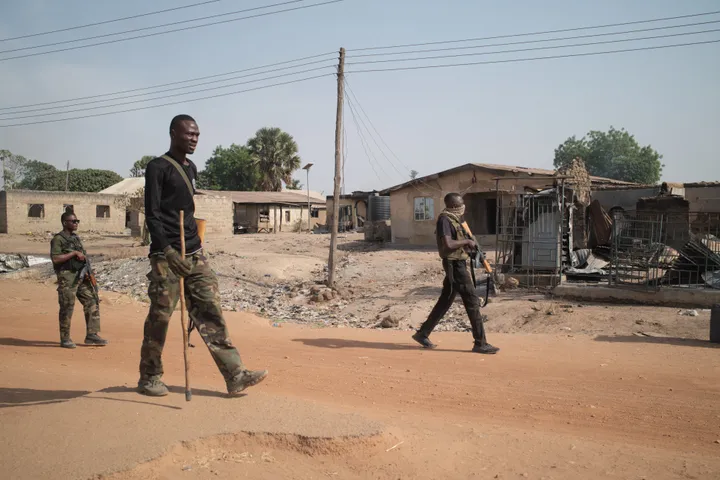Every member of the UN Security Council has called for increased aid during a closed-door meeting to discuss the humanitarian situation in the Tigray region of Ethiopia, according to diplomats.
"Everyone said there should be more humanitarian access," one diplomat said under condition of anonymity on Wednesday, though no official statement was released after the discussions.
There was never meant to be a declaration passed, according to the same diplomat, though another said the idea was abandoned because African members of the council had said they would refuse to vote for one, deeming it unproductive.
READ MORE: UN: ‘Disturbing’ allegations of rape in Ethiopia’s Tigray conflict
International intervention required
Meetings on the situation in Tigray have been few and far between since the Ethiopian military operation began in November, with African countries in particular preferring to treat the conflict as a domestic matter.
But Western powers have argued that the influx of refugees into neighbouring Sudan was a humanitarian crisis requiring international intervention.
The Security Council also failed to produce a declaration after other closed-door meetings on November 24 and December 14.
UN Secretary-General Antonio Guterres in mid-December announced two deals with Ethiopian authorities that should have allowed access to the country.
But opportunities to deliver aid remain fragile, UN spokesman Stephane Dujarric said on Wednesday.
"Very little is being allowed in," he said.
"What we need is to be able to just get in there in an unfettered manner without having to, I guess, negotiate for every truck, for every box."
"We work cooperatively with the government, and it's their country ... we have to go through them, and that's the way it should be," Dujarric said.
"But there is a grave humanitarian need in Tigray, and at this point, we're not able to reach the people that need to be reached."
UN aid chief Mark Lowcock said Abiy's government controls between 60 percent and 80 percent of the territory in Tigray, but does not have full command of the ethnic Amhara and Eritrean forces also operating in the region.
Dozens of witnesses say Eritrean troops are in Tigray to support Ethiopian forces, though both countries deny that.
The United Nations has received reports that police are operating at a fraction of their previous capacity and Lowcock said he could confidently say that if protection and aid were not quickly increased then the humanitarian situation would deteriorate.
He said there were troubling accusations of sexual and gender-based violence.
High-level UN figures visited Ethiopia this week, including the high commissioner for refugees Filippo Grandi and UN undersecretary-general Gilles Michaud, while a visit from World Food Program chief David Beasley is expected in the coming days, according to diplomats, to try to gain access to refugee camps.
Akshaya Kumar of the NGO Human Rights Watch said: "The Security Council should hold a public session followed by a strong resolution demanding an end to aid obstruction and immediate investigation of war crimes" in Ethiopia.
READ MORE: Risk of mass starvation in Ethiopia’s Tigray, aid workers warn























